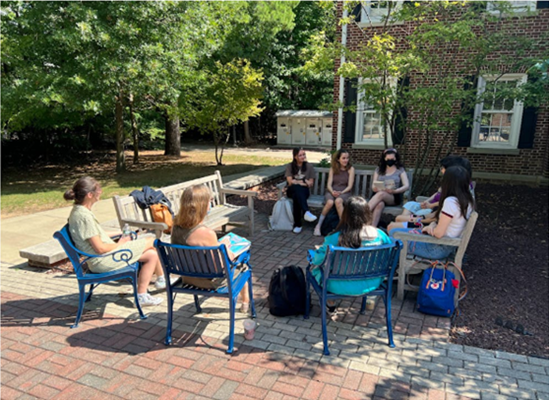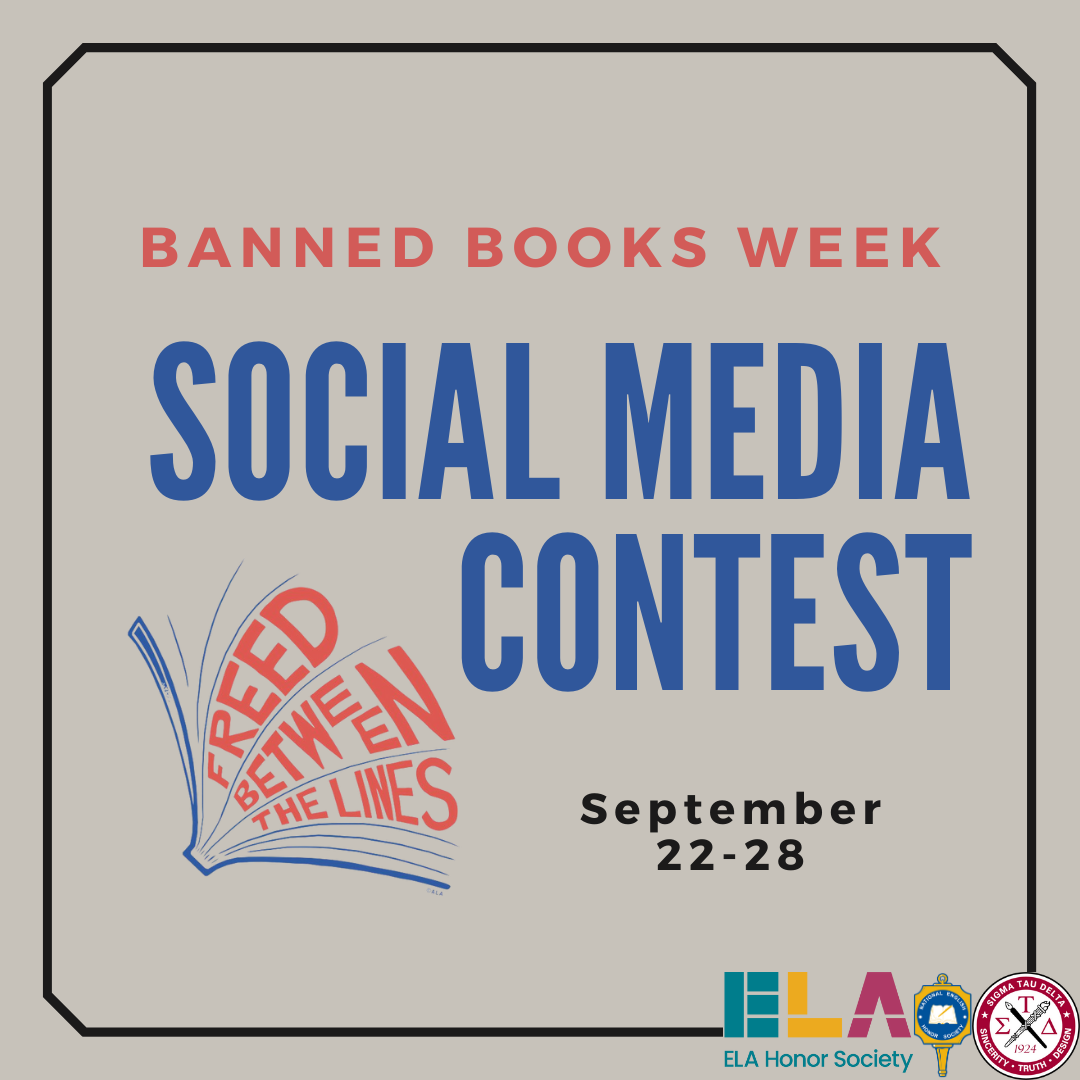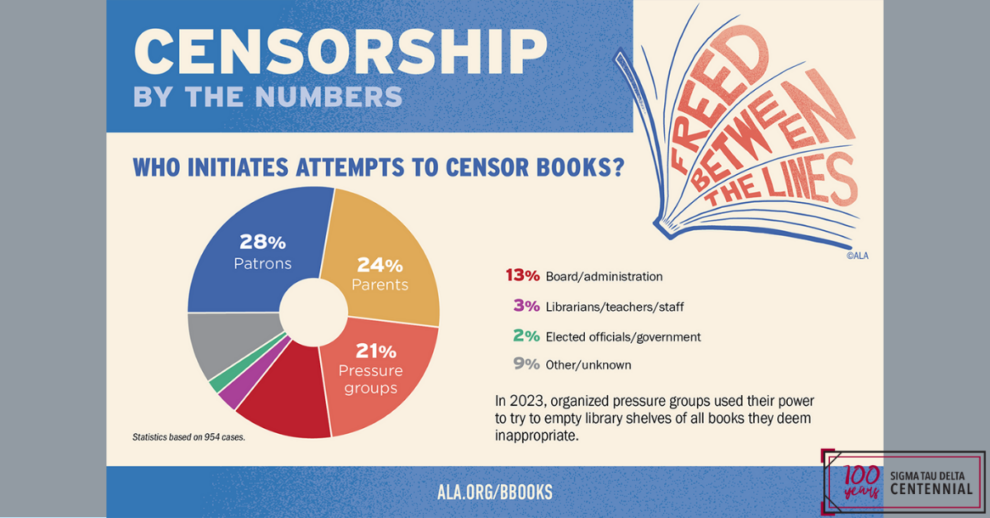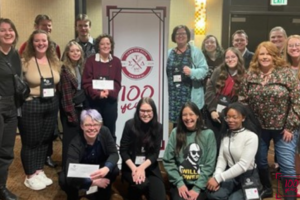The average bookish individual, avid reader, or literature fan probably already knows about book bans, knows how dangerous they are, knows how they target BIPOC and LGBTQIA+ voices, and knows that book bans have gained a frightening amount of traction in recent years. It’s easy for us to despair and say, “I’m just one person, what can I really do?” but the truth is that you can do more than you think. By extending the sentiments and practices of Banned Books Week into the rest of your life throughout the calendar year, and encouraging others to do the same, you can promote a culture that values literary freedom and fights to keep literature accessible. But how can we really do that?
Civic engagement is an often underestimated or underutilized practice, and getting involved within your community is an essential piece of the “stop banning books” puzzle. By serving your local library through an advisory board or volunteer group, you become an active agent in protecting literary freedom from the groups that want to exert power over what others can or can not read. The importance of voting is most often discussed in the context of national elections, but local elections are just as (if not more) important when it comes to rallying against book bans. If you dedicate time to voting and attending school board meetings (or watching the virtual recordings), not only will you stay informed and attuned to the needs or attitudes of your community, but you can ensure that your voice is heard. Positive change hinges on that power, ability, and willingness to listen close, then speak out.

These simple forms of civic engagement are what got Kate Lindley started on her immensely successful “Free to Read” campaign. After virtually tuning in to her county’s school board meeting in which “the board not only voted to give itself full authority over all books in school libraries and classrooms but also to immediately remove 19 titles from the schools’ libraries,” Kate began working on a project to disseminate information about banned books to her peers, and create avenues for people to access these books. Not every single person in the world has to go above and beyond like Kate did, but we can all foster these ideals by starting where she did: staying engaged with her community. The next Kate Lindley could be someone that you bring with you to a school board meeting, or the person that they talk to about it, or that person’s cousin who wants to get active in local politics. A constellation of people, all finding easy ways to get involved in their community, is so much stronger than an individual defeatist mindset, and that’s the kind of communal work necessary to overcome these challenges to literary freedom.
Social activity is another easy way to champion the freedom to read: conversations with friends, family, coworkers and colleagues may enlighten and educate people in your surrounding communities. Sharing your own experiences (via social media, banned book clubs, or some other outlet) can help people in those communities understand and fight back against book bans. Word of mouth is powerful, and these sentiments, advice, and words of encouragement often mean much more to us when they come from people we know, love, respect, or admire. Relying on that social power is how we transition from hopeless thinking to positive action supporting literacy in our communities. By continuing these efforts beyond Banned Books Week, we can help protect the right to read for everyone.
Resources
- Pen America’s tips for fighting book bans
- Banned Books Week handbook
- An “Action Kit” from the National Coalition Against Censorship
- Categorized resources provided by Penguin Random House
 Matthew Chinique
Matthew Chinique
Student Representative, Eastern Region, 2024-2025
Alpha Epsilon Alpha Chapter, President
The College of New Jersey, Ewing, NJ
Banned Books Week Social Media Contest
 In celebration of Banned Books Week (September 22 – 28, 2024), Sigma Tau Delta, NEHS, and the ELA Honor Society are teaming up to host the ninth annual Banned Books Week social media contest. To participate you must tag us in a post on any of the following social media accounts:
In celebration of Banned Books Week (September 22 – 28, 2024), Sigma Tau Delta, NEHS, and the ELA Honor Society are teaming up to host the ninth annual Banned Books Week social media contest. To participate you must tag us in a post on any of the following social media accounts:
- Sigma Tau Delta Facebook
- Sigma Tau Delta Twitter (@EnglishCon)
- Sigma Tau Delta/NEHS Instagram (@EnglishMatters)
What to do in Your Post:
Books are banned for a variety of reasons. Take your own original photo of your favorite banned book and share with us (on one social media platform) one of the reasons it has been contested. If you wish to post on a second platform, please choose a second banned book to post about.
The contest will run September 22 – 28, 2024. Everyone who participates during this time frame will be entered in a drawing to win one of three $25 Bookshop.org gift cards. A $50 Bookshop.org gift card will also be awarded for the best overall post. Select submissions will be shared across our social media platforms.
Resources
I’m With the Banned: The Whys and Hows of Banned Books Week
Troubling Trends in Book Censorship
Milton and Paradise Reimagined: Book Censorship Today
George Orwell and Recent Censorship
Don’t Burn the Books
How Old is Holden Caulfield?: Censoring a Teenage Narrator in an Adult Book from Teenage Eyes
Why Books Depicting Violence are Important
Banned Books: Stand Up for What Moves You
Banned Books: Symbols of Positive Ideological Shifts
What Intellectual Freedom Is—And Why and How We Ought to Preserve It






Add Comment